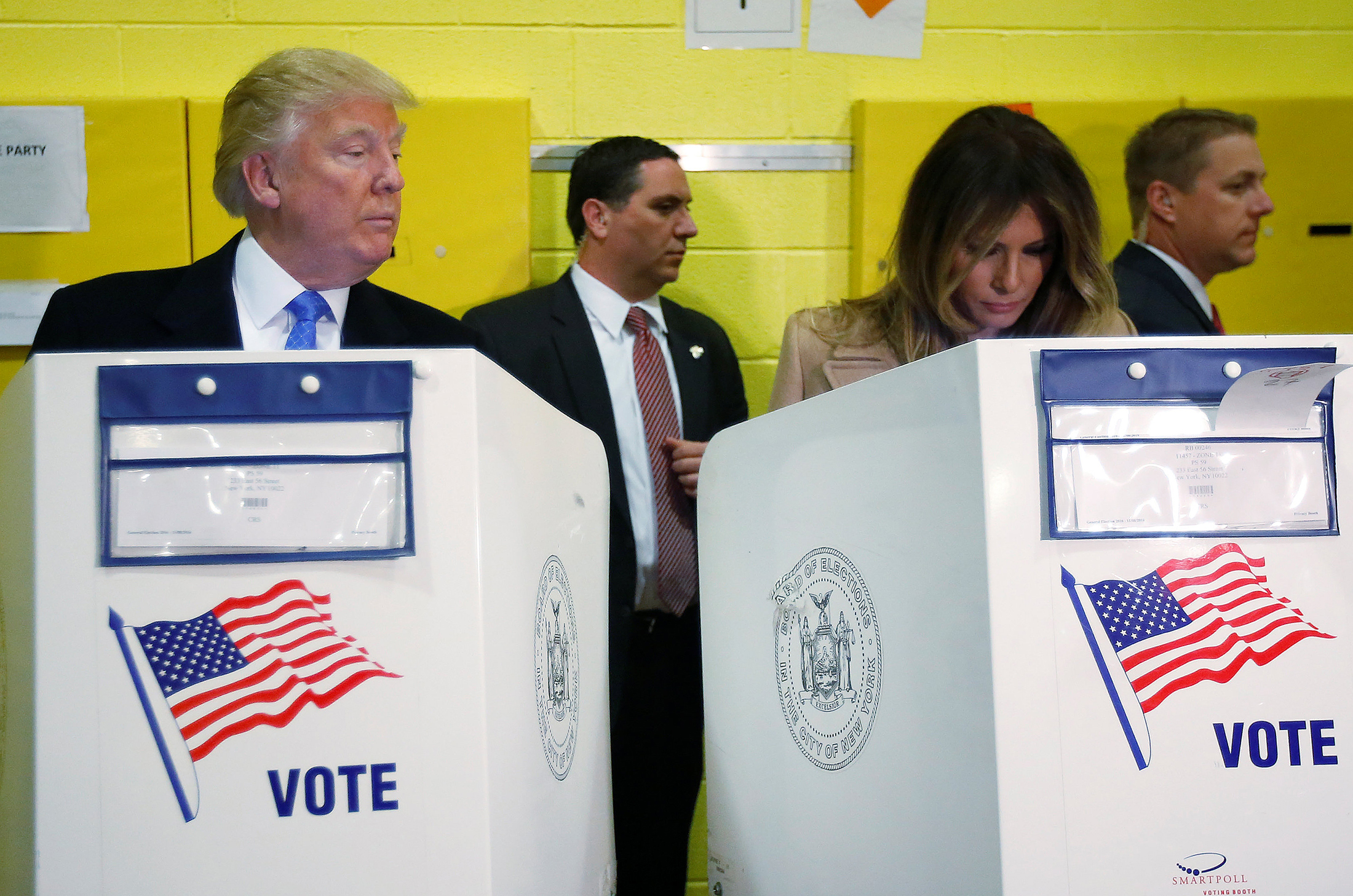As a result of President Trump’s claims that “millions of votes” were cast illegally in 2016, he set forth a commission to investigate vote-fraud around the country. The action came under immediate fire from some unlikely opponents in the President’s own party when the commission began requesting access to state voter rolls across the country.
The Atlantic details the push back, coming mostly from Republican secretaries of state:
Republicans officials and officeholders were, for the most part, not pleased about the rise of Donald Trump as their party’s candidate, but they found themselves powerless to stop his winning the nomination and then the presidency.
Since Trump became president, however, Republicans have become some of his most effective antagonists, stymieing a range of efforts.
…
The board has always looked like a cynical ploy. Stung by his failure to win the popular vote, even as the electoral college gave him the presidency, Trump has insisted that there were 3 to 5 million votes cast by ineligible voters during the presidential election. This number seems to be based on wildly speculative figures produced by an activist named Gregg Phillips.
…
Unsurprisingly, several Democratic state secretaries of state (or their equivalents) immediately rejected the request. More interesting was the response by Republicans officials at the state level. A number of them have also rejected the request either in part or in full, citing taxpayer costs, privacy intrusions, or the fact that they doubt Kobach’s request can do much to stop fraud.
The most colorful response came from Mississippi Secretary of State Delbert Hosemann, a Republican.
“My reply would be: They can go jump in the Gulf of Mexico and Mississippi is a great State to launch from,” he said in a statement. “Mississippi residents should celebrate Independence Day and our State’s right to protect the privacy of our citizens by conducting our own electoral processes.”
The Washington Post editorial board called the commission, itself, a fraud:
Even before holding its first meeting, the commission has been subjected to the contempt it deserves. At least 44 states, plus the District, have said they cannot or will not comply with all or part of the commission’s request for extensive information on voter rolls, including partial Social Security numbers and party affiliation of registered voters.
In contrast with its members’ unwarranted obsession with fraud, the panel shows no inclination to examine the huge spike in reported attempts to penetrate voter-registration systems ahead of the 2016 elections in more than 20 states, including Illinois, where hackers assailed the State Board of Elections “5 times per second, 24 hours per day” last summer, according to state officials. Given that clear and present threat, wouldn’t it be logical if the commission pushed back against efforts to defund the Election Assistance Commission, the federal agency charged with helping states combat hacking and conduct smooth elections?
I wouldn’t expect much positive coverage of anything President Trump does to come from the WaPo, but they make a point in that there are some concerning matters that should be addressed immediately. Chief among them are the reports that some county election boards appear to have been targeted by a foreign power, perhaps Russia, attempting to hack into their network. Those kinds of things should be first on the list, and the federal government might be able to providing some grants to some of these localities to harden their security in response to this attacks. That would be an appropriate roll to play since it dovetails with national security. Requesting voter rolls, however, is not in the cards.
The federal government does not have the power to venture into voter rolls at the state level. The only time the federal government should or could step in is when voting rights are being inhibited, or voter intimidation is taking place.
Donate Now to Support Election Central
- Help defend independent journalism
- Directly support this website and our efforts
